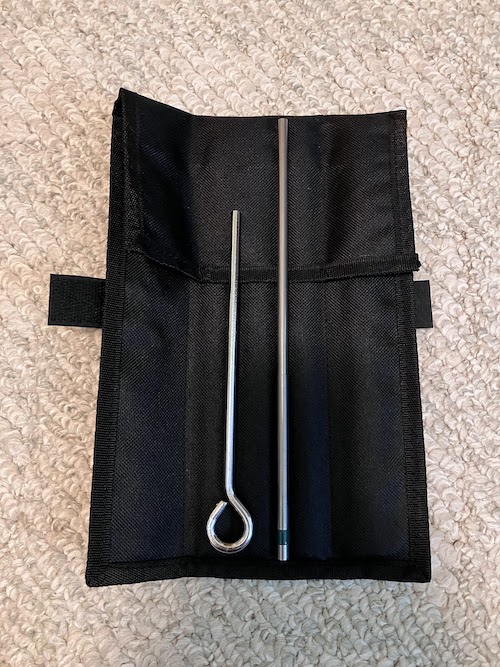Tweaking the Variables
Let's talk about playing the triangle. I know, I know. Just stay with me here.
I enjoy playing many instruments, but percussion was my entry point to being a musician and is still my biggest musical passion. Playing the drums has always "just worked" for me in a way, and I find the broader family of classical and ethnic percussion instruments endlessly fascinating. Most aspiring percussionists don't realize how much their college and professional experience will focus on the humble triangle. Are there technical snare drum passages, fancy mallet work, and bombastic timpani moments? Of course. But, especially in the orchestral world where I've spent much of my time, the bread-and-butter work of performance is often done on the triangle, tambourine, cymbals, and other less flashy instruments.
Percussion is all about repetition and consistency, so once I find an instrument, technique, or sound that works, I tend to stick with it forever. This is an admittedly different approach to the one I've taken with other instruments (guitar, for example), but it has served me well. So it was disconcerting when an ongoing tendon issue in my right wrist started to affect my playing. Performance processes I had taken for granted for many years were no longer reliable. My doctor referred me to a specialist who referred me to an occupational therapist. And while I didn't hold the reactions I got when I told each of them I was there to improve my triangle playing against them, it was true. This issue has affected many activities (not all musical), but the triangle, with its rapid and precise movements, is a prime example.
After a fair amount of therapy, some progress has been made. There isn't any quick or easy solution to my problem, but I've learned a lot, have some new techniques that help, and have a better awareness of what's happening in my body. All good things. But triangle improvement still eluded me, which is why it was such a revelation last week when I had to quickly cover a part in a rehearsal. My triangle and beaters were still tucked away, so I grabbed whatever was already on the table. And I was absolutely shocked at how much easier it was to play. This is the problem with having such a set-in-my-ways system. I focused on the significant variable that had changed (my wrist) without thinking about how tweaking a smaller variable (the beater) could assist.
I've used the same inexpensive set of triangle beaters for more than ten years, and they've served me well. I never even considered making a change because, in my mind, they were working. But trying something with a bit more length and weight gave me the extra control I need right now to compensate for my wrist problem. Last week was a busy playing week for me, so I hit up our excellent local drum shop the next day, bought a new set, and had much less frustration throughout the rest of the week.

This is a very particular example, but I'll remember the broader lesson in the future. A seemingly tiny tweak can improve a process significantly, and it doesn't always have to come from the most obvious place. It's worth testing all the variables.
--
If you found this post valuable, please consider subscribing via email or RSS.